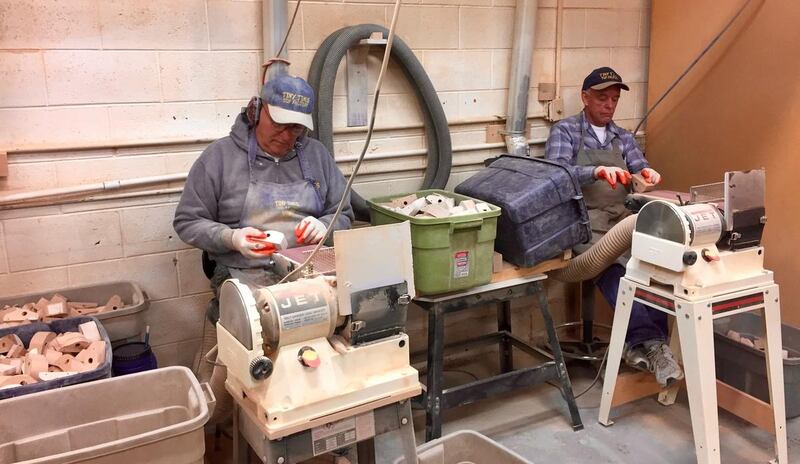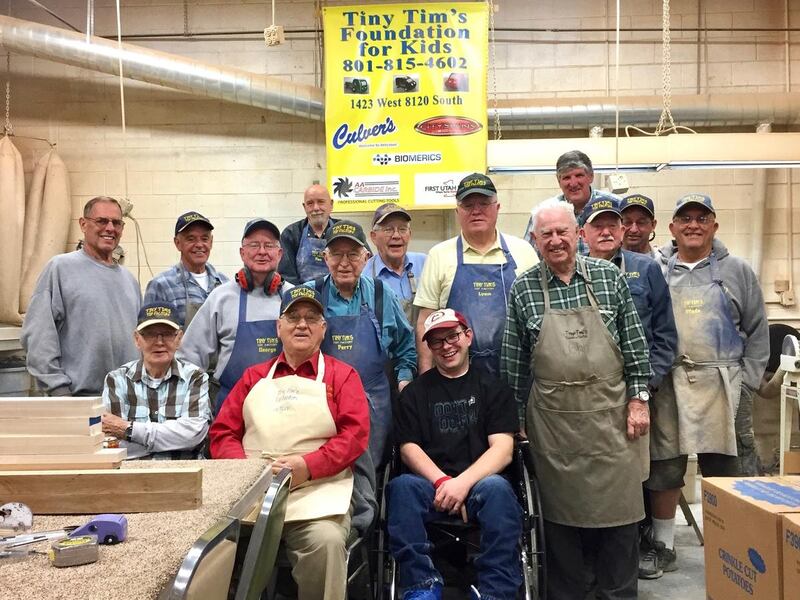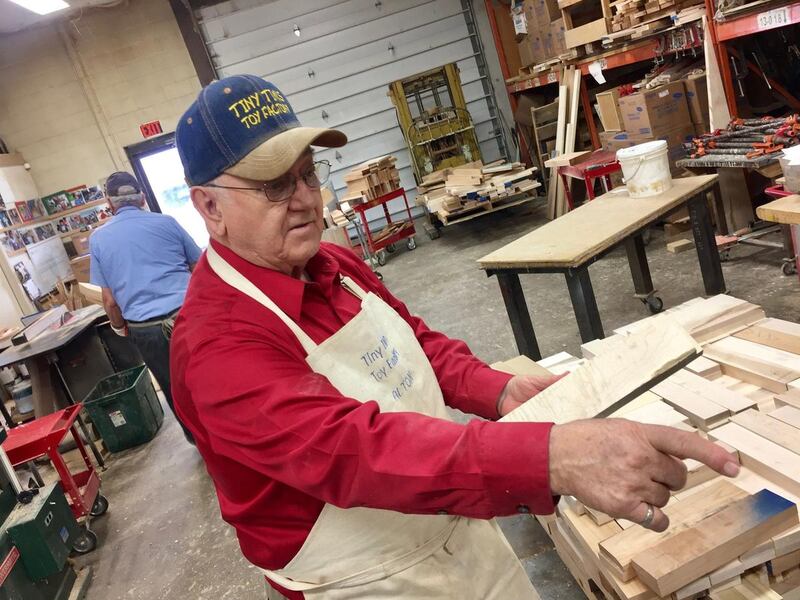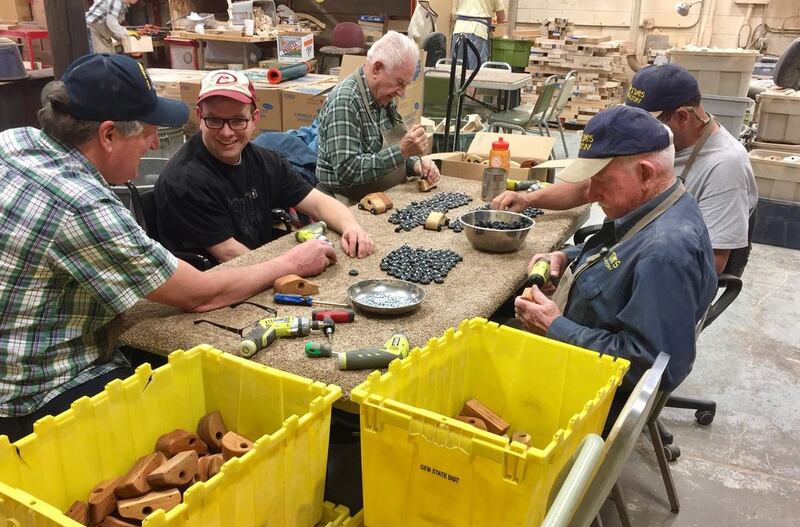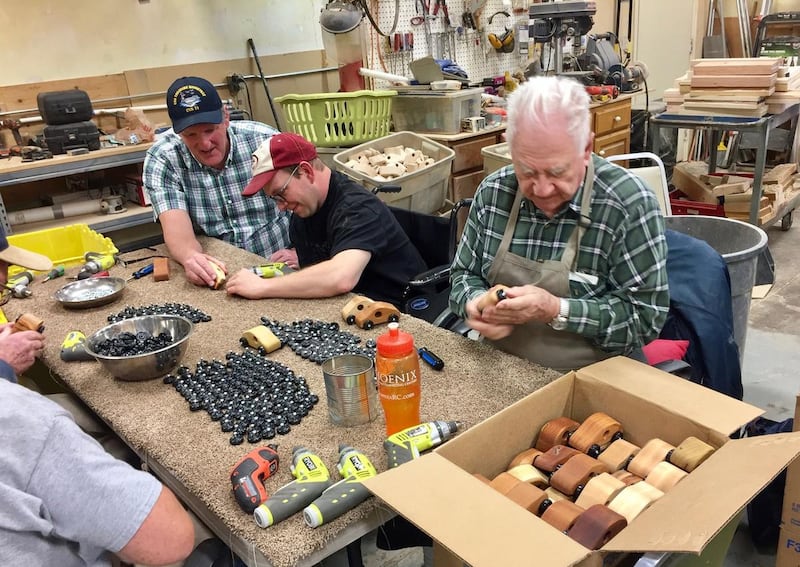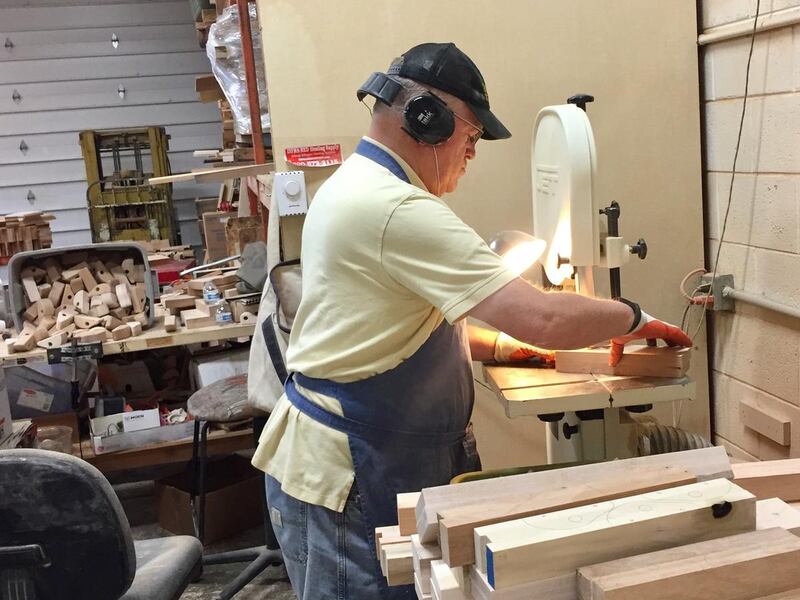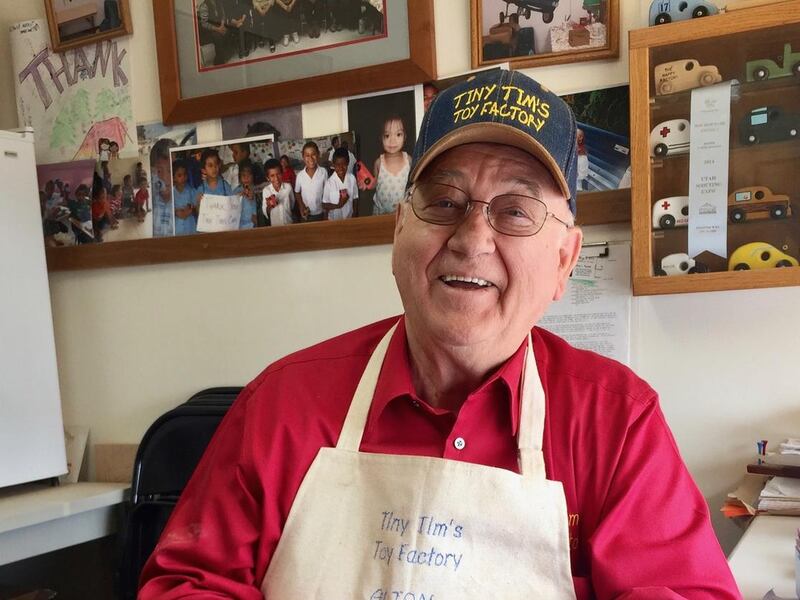WEST JORDAN — Alton Thacker’s business plan:
1) Get all raw materials donated.
2) Don’t pay salaries.
3) Provide no benefits.
4) Employ felons.
5) Zero budget for advertising, public relations and rent.
6) Give away the finished product.
Try presenting a paper on that at Harvard Business School.
But don’t scoff, because here’s the thing: it works. And has been working for 15 straight years.
Alton, 81, is owner and founder of Tiny Tim’s Toy Factory, an enterprise that makes one product: small wooden cars, about 80,000 of them every year. The company’s one and only goal is to get those toy cars in the hands of kids anywhere and everywhere. Period.
Alton opened the factory in 2002, not long after he retired as a barber. For years before that, he and his wife, Cheryl, had been involved in a variety of humanitarian efforts in Mexico. They delivered medical supplies and eyeglasses, helped build hospitals and schools, and at Christmastime dressed up as Santa and Mrs. Claus and handed out presents.
But that all ended when a Mexican friend pulled Alton aside and advised him that the drug cartels were becoming too dangerous and it would probably be a good idea if he stopped coming across the border so often.
That’s when Alton decided to retreat to Utah and start up Tiny Tim’s (named after a handicapped boy in Mexico he met and became fond of named Tim).
For his workforce, he recruited fellow retirees like himself with time on their hands and good on their minds.
For the wood to make the toys, he made the rounds of cabinetmakers, lumberyards and hardware stores that agreed to donate their scraps.
For a workplace, he found an out-of-the-way warehouse in first Sandy, then West Jordan, and got a benefactor to pay the rent.
And for a final finishing touch, once the cars were assembled, he arranged for inmates at the state prison in Gunnison to paint them.
The average age of a Tiny Tim worker is “about 80” (not counting the inmates). That includes about 22 regulars, along with several more irregulars, all of whom show up for a workweek that consists of Tuesdays, Wednesdays and Thursdays, nine-to-five, with an hour or so for a lunch break that usually involves going to Culver’s or Arctic Circle and handing out toy cars to any little kids in sight.
At the factory, everybody has an assigned spot in the Tiny Tim’s assembly line as a block of wood gets traced, cut, drilled, sanded, routed, assembled with wheels and stained.
Then the cars are shipped to the prison, where painting them is a plum assignment, open only to prisoners who maintain a record of good behavior.
Each month, some 7,000 toy cars get rolled out. Standing monthly orders include 200 each for the Road Home homeless shelter, Ronald McDonald House and Fisher House; 300 each for Primary Children’s Hospital and Shriners Hospital; 2,000 for Operation Give; and 2,500 for Eyes for Zimbabwe. In addition to that, dozens of Eagle Scout projects disperse the toys around the world each year, along with people traveling abroad either for pleasure or business who hear about Tiny Tim’s by word of mouth. There aren’t many countries on Earth that by now don’t have kids counting a Tiny Tim’s toy car among their most prized possessions. (If you’d like to volunteer as a worker or to help deliver cars, call 801-815-4602).
As CEO, Alton does what all great managers do: tries to keep out of the way.
That and tell jokes.
“Some of these guys are constantly after a raise,” he deadpans. “And I give it to 'em, every time. I tell 'em, the pay is great, it’s out of this world and you’ve got to go there to get it.”
Every so often he does have to deal with real management issues. Like a couple of months ago, when he had to find a replacement for one of his ace workers, George Brockbank. Because George died — at age 97.
There is one problem, however, that is particularly vexing at the moment: The man who has paid the $1,200-a-month rent for the warehouse for the past six years recently notified Alton he can’t afford to do it anymore.
That presents an interesting challenge, considering you can’t cut salaries, trim overhead or charge more for your product.
But if Alton Thacker knows one thing after 15 years at the helm of a most unconventional company, it’s not to panic. In the kind of business he’s in, he's found that help tends to come in some very interesting, and completely unexpected, ways.

